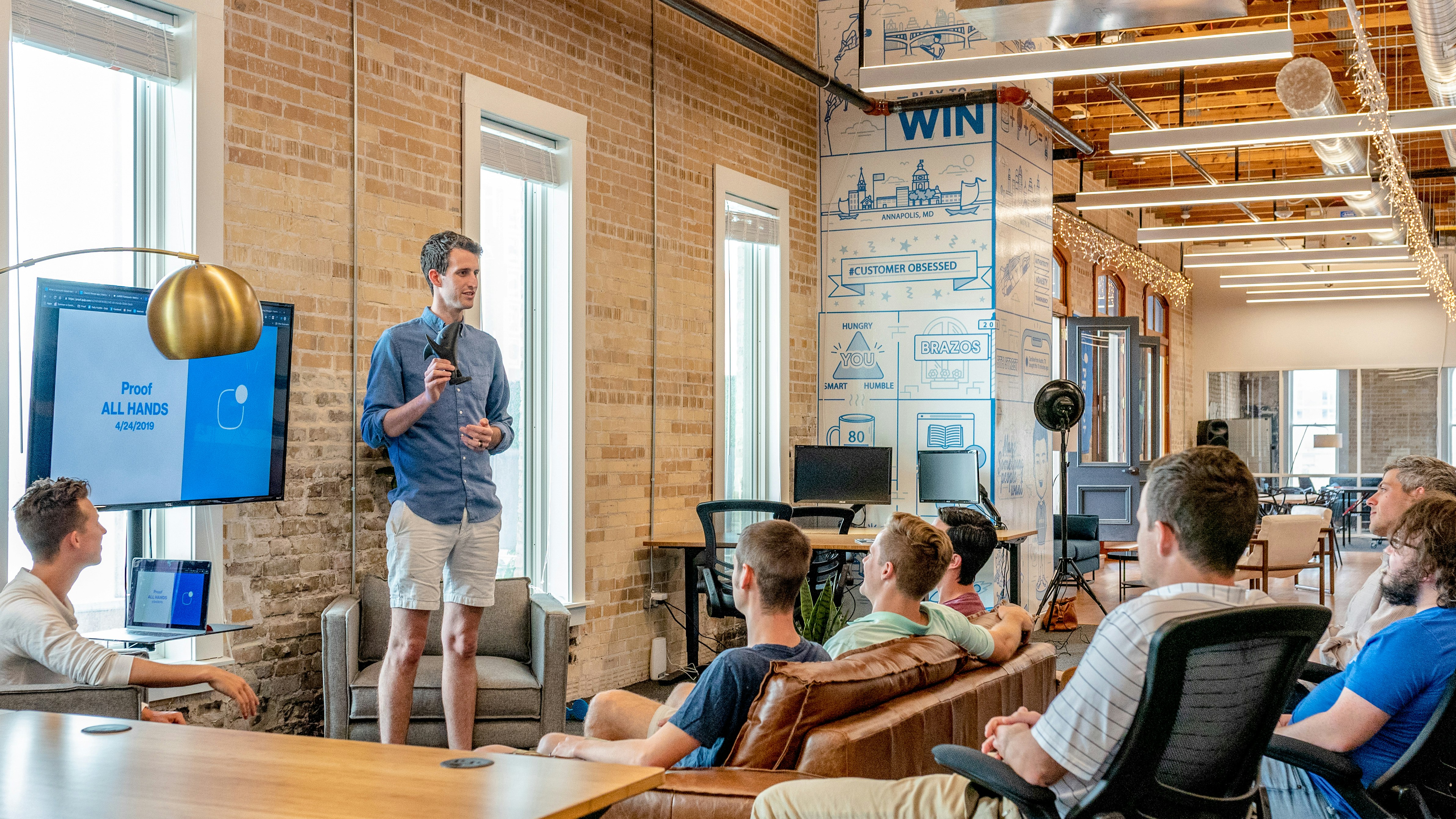
8 Proven Strategies to Attend Fintech Events for Free
 Draško Georgijev
Draško Georgijev 8 Proven Strategies to Attend Fintech Events for Free
Fintech conferences offer unparalleled opportunities for networking, learning, and career advancement—but with ticket prices often ranging from €500 to €2,000+, they represent a significant investment. While paid attendance is the most straightforward approach, there are several legitimate ways to access these valuable events without purchasing a ticket.
This article outlines eight proven strategies that finance professionals can use to attend high-value fintech events for free or tap into their valuable audiences without purchasing a pass—strategies I’ve witnessed first-hand being effectively used throughout the industry.
1. Strategic Off-Venue Meetings
A growing trend among seasoned fintech professionals is skipping the official conference pass altogether and organizing strategic meetings at locations near the event venue. This approach focuses on quality over quantity, prioritizing meaningful conversations over general event participation.
How it works:
- Identify key contacts who will be attending the conference
- Schedule meetings at restaurants, hotel lobbies, or cafes within walking distance of the main venue
- Create a focused agenda of high-value conversations that align with your specific objectives
Why it’s effective:
- Many conference attendees welcome the opportunity to step away from the noisy event floor for focused discussions
- You can tailor your schedule precisely to priority meetings rather than navigating a packed agenda
- The quieter environment leads to deeper, more meaningful conversations
- You avoid the “buzzword circus” that often characterizes large events
Implementation tips:
- Research the official attendee list 3-4 weeks before the event (often available on event websites or via LinkedIn)
- Book restaurant reservations well in advance, as venues near conference centers fill quickly
- Create a structured meeting schedule that respects attendees’ official conference commitments
- Use event hashtags on social media to identify potential contacts who will be in attendance
As one fintech executive noted: “Massive events like Money20/20 are what you make of them — but if you don’t show up with a crystal-clear idea of who you want to meet and why, it quickly turns into a buzzword circus. More and more people skip the event pass altogether and just book restaurants nearby to host meetings. Honestly, not a bad move if you know who you want to talk to. Less noise, more depth.”
2. Volunteer Your Time and Skills
Almost every major conference relies on volunteers to ensure smooth operations, and this remains one of the most reliable routes to free attendance.
How it works:
- Most events offer shifts of 4-6 hours in exchange for full conference access during non-shift hours
- Application deadlines typically open 3-6 months before the event
- Larger conferences may require an application and interview process
Best practices:
- Apply early, as volunteer spots fill quickly for premium events
- Be flexible with your shift preferences to increase selection chances
- Request shifts during session blocks that are less relevant to your interests
- Highlight any relevant experience in your application (previous volunteering, customer service, etc.)
Real example: For Money 20/20 Europe, applications for the “Event Crew” program open approximately four months before the event. Volunteers typically work 2-3 shifts (4-5 hours each) in exchange for full conference access, meals during shifts, and networking opportunities with other volunteers—a package worth €1,700+.
3. Create Valuable Content
Event organizers increasingly recognize the value of content creators who can extend an event’s reach beyond physical attendees.
Content creation opportunities:
- Blogging: Commit to publishing detailed event coverage
- Social media: Live-tweeting/posting with significant follower reach
- Photography/Videography: Professional documentation in exchange for access
- Podcasting: Recording interviews or event coverage
How to approach organizers:
- Prepare a media kit with statistics about your audience and content reach
- Pitch specific coverage plans, not just general interest
- Share examples of previous event coverage
- Reach out at least 2-3 months before the event
When this works best: This approach works particularly well for mid-tier events looking to increase their visibility. Top-tier events like Money 20/20 or Sibos typically have more stringent requirements for media credentials, but smaller, growing events are often more flexible.
4. Speak or Participate in a Panel
Speaking at an event almost always includes complimentary registration, and sometimes travel expenses as well.
Types of speaking opportunities:
- Keynote presentations (highest barrier, but greatest credential value)
- Panel discussions (more accessible for mid-career professionals)
- Workshop sessions (ideal if you have specialized knowledge)
- Lightning talks/pitches (quick 5-10 minute presentations)
How to secure speaking slots:
- Monitor “Call for Speakers” announcements 6-8 months before events
- Develop 2-3 unique, topical pitch ideas focusing on emerging trends or solutions to industry problems
- Create a professional speaker profile with your credentials, previous speaking examples, and topic expertise
- Connect with event organizers on LinkedIn to express interest
Reality check: Competition for speaking slots at premium events is intense. Focus initially on smaller, regional events to build your speaking credentials before targeting larger conferences.
5. Leverage Employer Sponsorship Allocations
If your company sponsors fintech events, they typically receive complimentary passes as part of the package.
How to tap into sponsor tickets:
- Identify which events your company sponsors (check with marketing/events teams)
- Express interest early, before passes are allocated
- Prepare a clear business case for why you should use one of the passes
- Offer to represent the company in specific ways (staffing booths, attending partner meetings, etc.)
Strategic approach: If your company doesn’t currently sponsor relevant events, consider preparing a proposal demonstrating the ROI of sponsorship. Entry-level sponsorship packages often start at €5,000-10,000 and include 2-5 passes, making it cost-effective compared to individual registrations while providing marketing benefits.
6. Apply for Scholarship/Diversity Programs
Many fintech conferences now offer scholarship programs to promote diversity and inclusion in the industry.
Common eligibility categories:
- Underrepresented groups in fintech/finance
- Students and early-career professionals
- Entrepreneurs and startup founders
- Professionals from emerging markets
- Non-profit/public sector employees
How to find these opportunities:
- Check the “Diversity & Inclusion” or “Community” sections of event websites
- Follow event organizers on social media where these opportunities are often announced
- Set Google Alerts for “[Event Name] + scholarship” or “[Event Name] + diversity program”
Application tips: Scholarship applications typically require essays or video submissions explaining why you should be selected. Focus on both what you’ll gain professionally and how you’ll contribute to the event community.
7. Partner with Exhibitors or Speakers
Companies exhibiting at events often receive multiple passes but don’t always use their full allocation.
Networking approaches:
- Identify companies in your network that regularly exhibit at target events
- Offer specific value in exchange for using their extra passes (e.g., helping staff their booth, scheduling meetings with potential clients, social media promotion)
- Begin these conversations 2-3 months before the event
Case study: A colleague of mine secured access to Singapore Fintech Festival by offering to conduct 10 pre-scheduled customer demos at a software vendor’s booth. The arrangement gave him full event access while providing tangible value to the exhibitor.
8. Watch for Last-Minute Opportunities
Event organizers and sponsors often have last-minute pass availability due to cancellations or unallocated sponsor tickets.
Last-minute strategies:
- Join event community groups and channels (Slack, LinkedIn groups, etc.)
- Monitor social media with event hashtags the week before the event
- Contact the organizer 3-5 days before the event inquiring about volunteer needs
- Network with speakers who might have extra passes
The contest route: Many event sponsors run contests for free tickets in the weeks leading up to major conferences. Follow potential sponsors on social media and set up alerts for keywords like “[Event Name] + contest” or “[Event Name] + giveaway.”
Ethical Considerations and Professionalism
While pursuing free attendance, maintain professional integrity:
- Be honest in applications - Never misrepresent your qualifications or intentions
- Deliver on promises - If you’ve committed to creating content or volunteering, fulfill that commitment fully
- Respect exclusivity - Some parts of events may be restricted even with free access; honor these boundaries
- Pay it forward - Once established in your career, consider sponsoring others who could benefit from attendance
Conclusion: The Long Game
While these strategies can help you access events without purchasing a ticket, remember that the ultimate goal is professional development and relationship building. Approach free attendance as an investment in building your knowledge and network, not just avoiding costs.
The most successful professionals view conference attendance as part of a career development strategy. Start with these free attendance methods, deliver exceptional value to those who provide the opportunity, and as your career advances, reciprocate by helping others access these valuable industry gatherings.
What’s your experience? Have you successfully accessed fintech events using these or other methods? Share your experiences in the comments below.

About Draško Georgijev
Draško is a fintech product specialist with 20+ years of experience in the payments industry. He currently works as a Product Manager at Nexi Group, and previously led POS/eComm/ATM Operations at FirstDataCorp (Fiserv).
Get Latest Updates
Subscribe to our newsletter for the latest fintech event insights.
We respect your privacy. Unsubscribe at any time.
Explore Topics
Related Articles

Top 7 Fintech Events 2025
February 15, 2025

